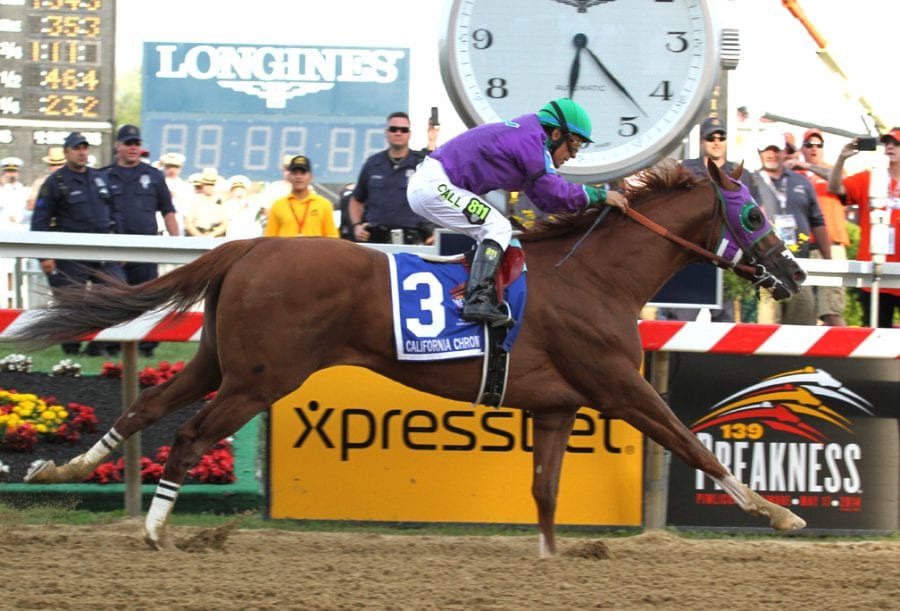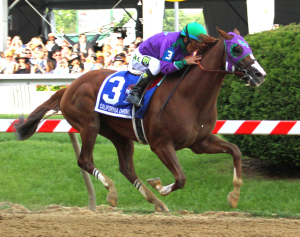by Doug McCoy
With California Chrome headed for a date with destiny in this year’s Belmont Stakes, more and more people are realizing just how difficult it is to become a Triple Crown winner. While the obvious difficulty of winning three races against top competition in a five week period has been well documented, many fans don’t realize that there are countless little things that can make the difference between a horse that’s remembered as a Triple Crown winner and on that ends up as an unlucky footnote in history, a winner of two of the three big races.
Here’s a tale that graphically illustrates how a small but crucial incident in a race could have rewritten Triple Crown history.
SEATTLE SLEW OVERCOMES SLOW START TO WIN 1977 KENTUCKY DERBY
That was the common story line on many sports pages the first Sunday in May of 1977 after Billy Turner’s colt overcame falling out of the gate like a drunken sailor to carry jockey Jean Cruguet to victory in the first leg of the Triple Crown.
What many didn’t know then — and few remember today — is that legendary rider Bill Shoemaker could well have prevented Cruguet and Seattle Slew from getting through the field to the front in the crucial early moments of the 1977 Run for the Roses.
The late Shoemaker, who won four Kentucky Derbies and 11 Triple Crown races, was aboard 27-1 shot Get the Axe that day in the 1977 Derby and was in the stall outside Seattle Slew. While the Derby favorite was essentially a speed horse, he also had a bad habit of breaking awkwardly, so much so that he had earned the nickname “Baby Huey” for his gate antics.
Shoemaker was at The Meadowlands several years later to ride Spectacular Bid in the Meadowlands Cup, and while visiting with friends, including this writer, at a party in the Pegasus Room after winning that race, the subject of Triple Crown winners came up.
“It’s funny the little things that happen in those races that can make a difference,” Shoe said. “In 1977 I was outside Slew in the gate on a horse (Get the Axe) that was like 27-1 and had no early speed. When they sprung the latch Slew sorta pitched to the outside into my horse’s flank while my horse broke good and we went on. A few seconds later I hear a jock yelling, ‘Runnin’ off, runnin’ off!’ I look over my shoulder and here comes Cruguet and Slew. He’s in high gear and Cruguet’s holding on for dear life.
“There was no place for them to go. Had he been yelling for room in the stretch it would have a different story but when a rider’s in real trouble in a race it’s an unwritten rule that you give them room if you can,” the riding great recalled. “So I moved out a bit and gave them (Slew and Cruguet) room to get through. They busted past me and actually pushed out some other horses going to the finish line the first time before they got to the lead. He (Seattle Slew) was a great horse and might well have won whether I gave him room or not, but I know if we don’t let him through the outcome could well have been different.”
Then Shoe, with his priceless dry wit, added, “And you know what? That damn Frenchman never even thanked me!”
(Next time: how a lesson learned six months earlier played a part in Affirmed’s victory in the 1978 Belmont.)










As if that wasn’t enough, Slew changed leads just before the wire. Lucky for him that Run Dusty Run wasn’t another length closer.